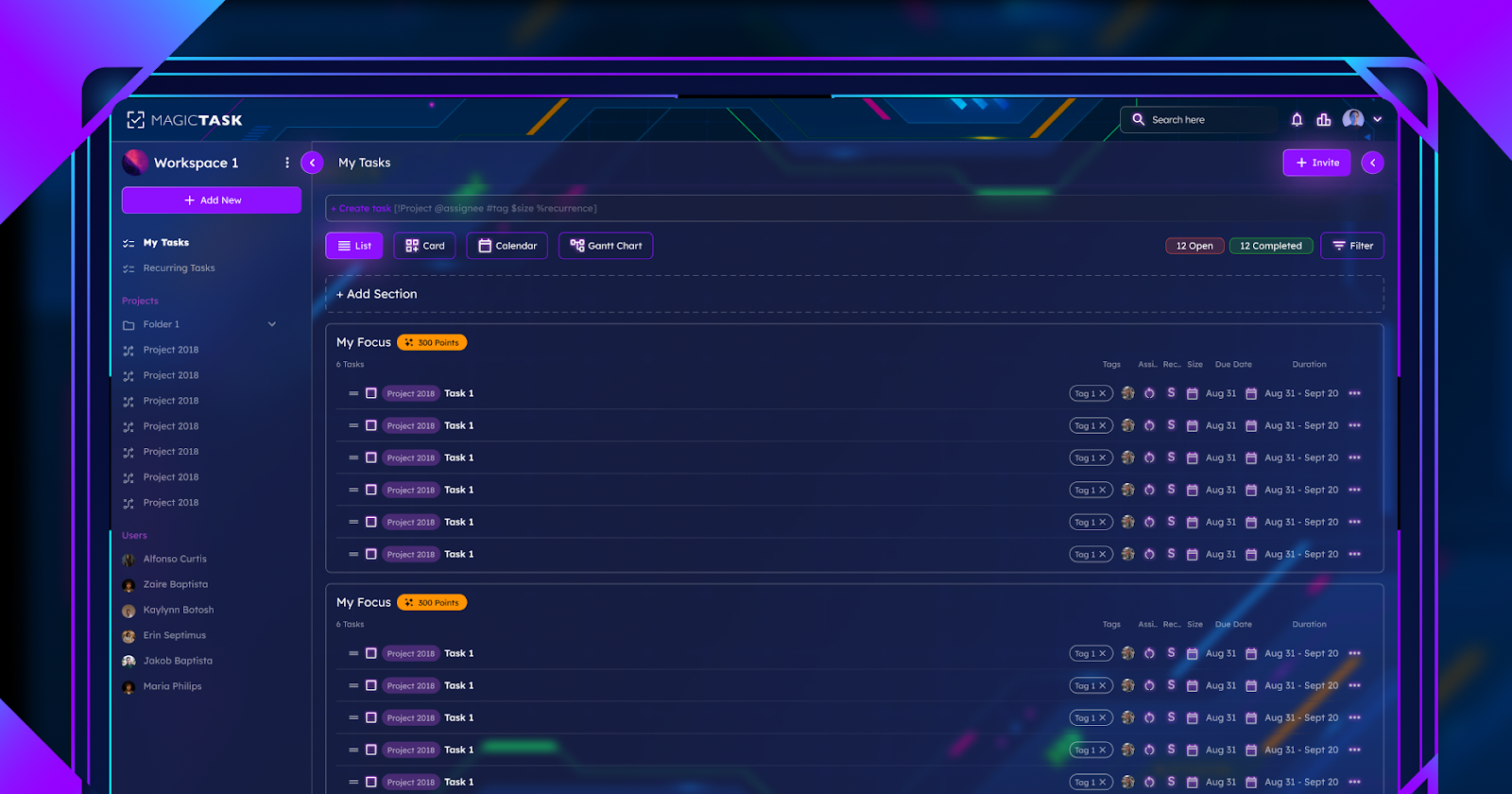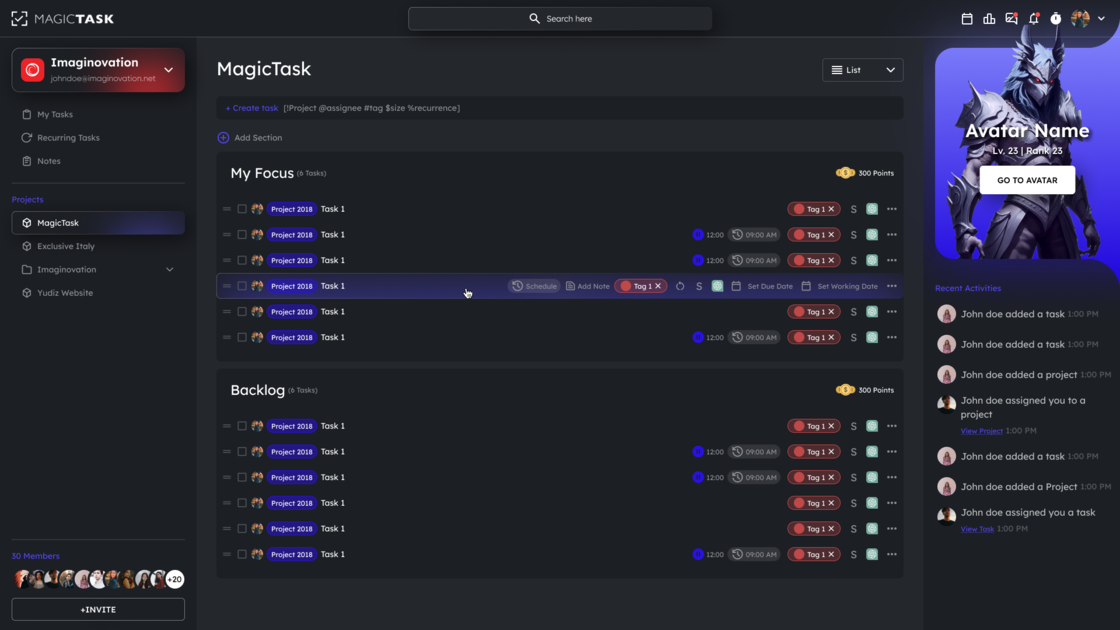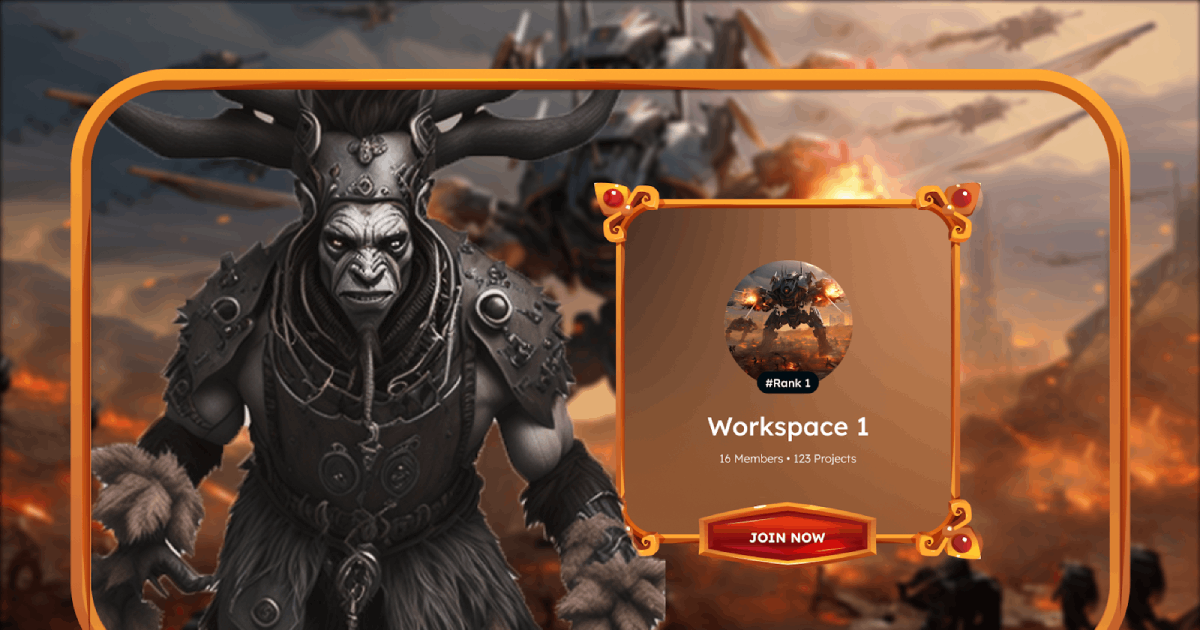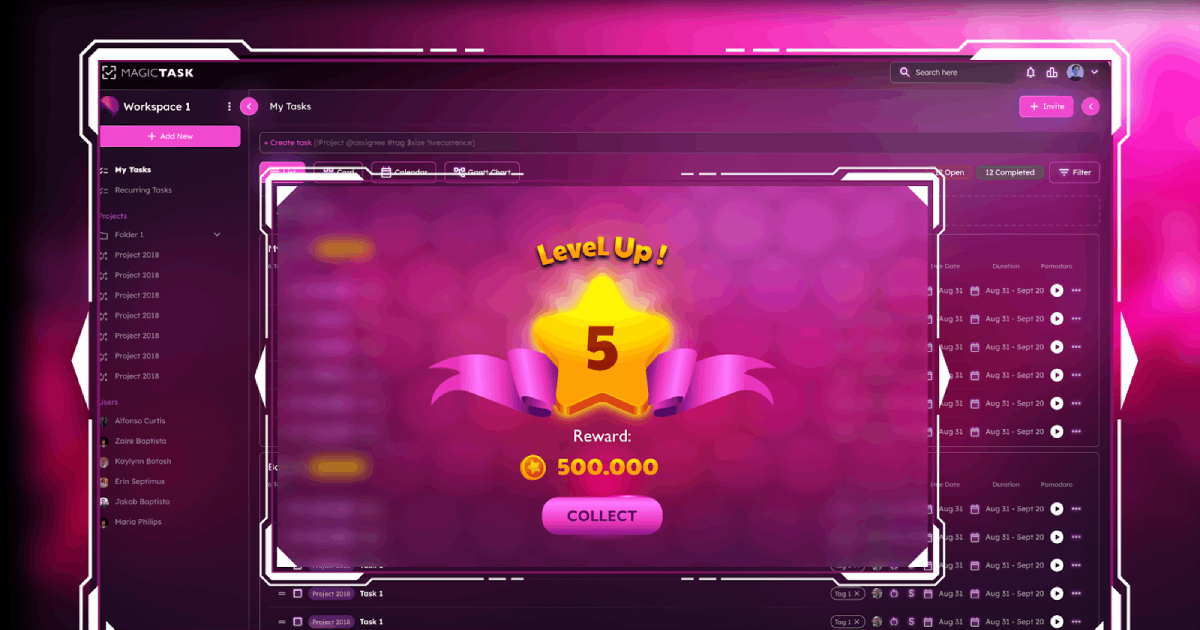7 Tips to Meet Your Deadlines and Finish Tasks on Time
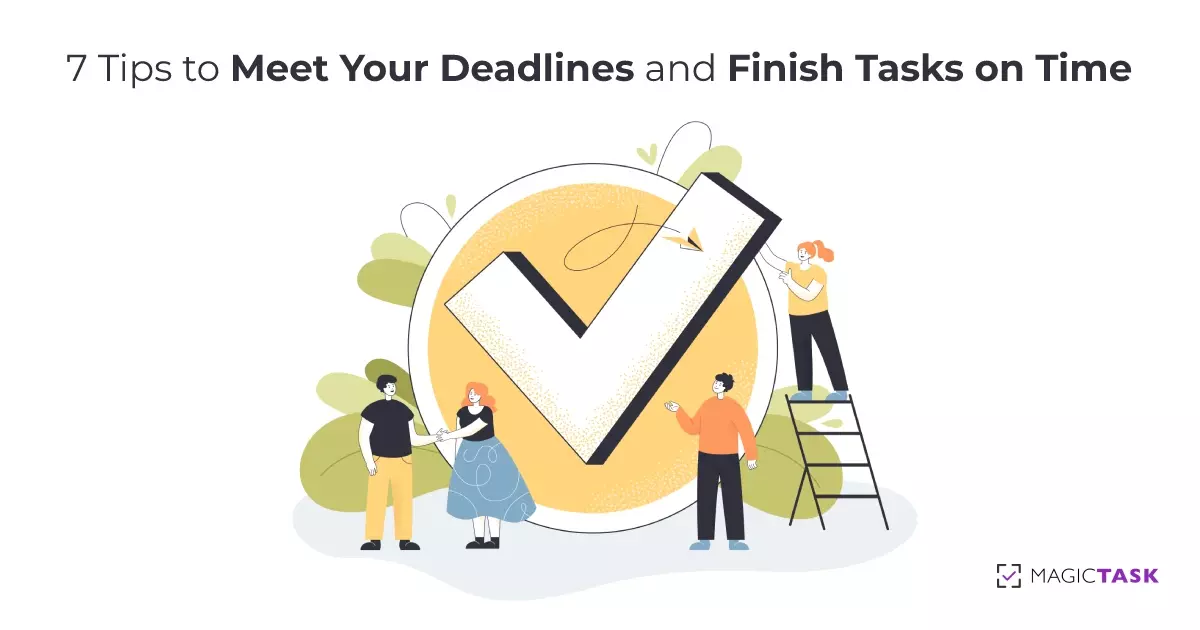
Deadlines aren't always the most pleasant aspects of projects or tasks, particularly as they get closer. Nobody is excited about that conversation with your manager, client, or professor as the deadline gets nearer and you need an extension.
Even if it's your personal goals, we're hit with an aching sense of dread if we won't be able to meet them by the deadlines.
Failing to meet deadlines can have a long-lasting impact on our reputation, affect our future business prospects and career growth, and keep us from fulfilling our personal goals.
But as much as most people dislike them, deadlines are an essential and powerful tool for project management. This blog post explores the importance of deadlines and how you can meet them easily.
What Are Deadlines, and Why Do They Matter?
Deadlines are the time or date by which the responsible person or team has to complete a task or achieve a goal. They're commonly used for everything from large-scale project management to submitting a high-school assignment.
Deadlines are a powerful communication tool.
They make it clear among team members, clients, and stakeholders when they should have the results or deliverables. It removes any ambiguity among the personnel involved in a project or task.
Picture a client telling a graphic designer they need a design ASAP. The designer may deliver the work as soon as possible after covering all of their commitments, or they may prioritize them over others. Or if an HR tells managers there's no rush on conducting employee evaluations, they may put it off indefinitely or do it whenever they're free.
There's no clarity among the involved parties in both of the above situations. It may go perfectly well for all of them, but there's a high likelihood of miscommunication.
They play a huge role in ensuring projects are delivered on time.
Large-scale projects have a lot of people working on them and will be made of many interdependent tasks. If a few of them are delayed, it will create a bottleneck that holds back the rest of the project.
But setting deadlines for each task will keep the complete project on track. It makes it easy to plan the next steps when project managers are sure they'll have the rest of the tasks completed and deliverables prepared on time.
They make our goals SMART.
Deadlines help us track where we're with our goals and tell us whether to keep the pace steady or step it up. Deadlines give us more visibility and control over our goals.

It helps teams plan well.
Deadlines offer more flexibility for team members and help them prioritize their tasks. With deadlines, team members can decide what they need to tackle on a particular day instead of asking their managers for specific instructions. It gives more freedom to the team members and avoids micromanagement from the team leaders.
They keep us accountable.
Deadlines help us push ourselves to reach our goals. Even if it's for our personal goals or ambitions, without deadlines, they are just dreams. We may achieve them at some point and call it a win. Deadlines help us avoid procrastinating and push for our goals.
7 Best Tips on How to Meet Your Deadlines
here are the 7 best tips for meeting deadlines and getting things done. From setting clear goals to using the right task management tools, you'll find practical strategies to help you stay on track and achieve your goals.
1. Set realistic deadlines
The first step to meeting your deadlines on time is to set realistic timelines. Setting impossible deadlines are setting yourself up for failure. Short deadlines will also significantly affect the quality of work.
For instance, if you're tasked with completing evaluations of 100 employees within a week, you'll either miss the deadline or the evaluations will be useless.
When setting your goals, consider your existing projects and responsibilities and the time you'll have to dedicate to the new task. It's also important to consider the time and resources the new task will take before you set the deadlines.
If your manager is setting your deadlines, ensure they're aware of your responsibilities and the effort it will take you to complete the new task. If your manager is unaware of your processes or abilities, they may give you a very extended deadline or a short one.
A simple rule of thumb will help you set realistic deadlines:
'Cheap, good, and quick: pick two and forget about the third.'
If you want something done quickly with minimal resources, you won't get the best results. If you want something done well with minimal resources, it will take a lot of time; if you want something done well and quickly, you'll need a lot of resources.
It's also important to keep in mind that a bit of extra time will give you or your time to polish the results, but too much spare time and it becomes inefficient.
2. Break down goals into smaller tasks
Large goals tend to be intimidating, and it may be tough to get started on them. They may also not be actionable; to reach your goals, you need a detailed step-by-step approach.
When you set long-term goals, break them down into small individual steps. For instance, if you're planning to build a million-dollar business within ten years, decide where you have to be at the end of every year. Break them down into what you must achieve at the end of every month and what you must do daily.
Large long-term goals often don't give us enough clarity. It isn't easy to track where we are and if our efforts are in the right direction or at the right pace. If we set goals for the end of the year, we may keep procrastinating till the deadline and then try to do all of it in one month or less.
But by breaking the larger tasks into small ones and setting individual deadlines, it becomes easier to keep track of them. You can quickly figure out if you're on top of it or need to up the pace a bit.
3. Use a task management tool.
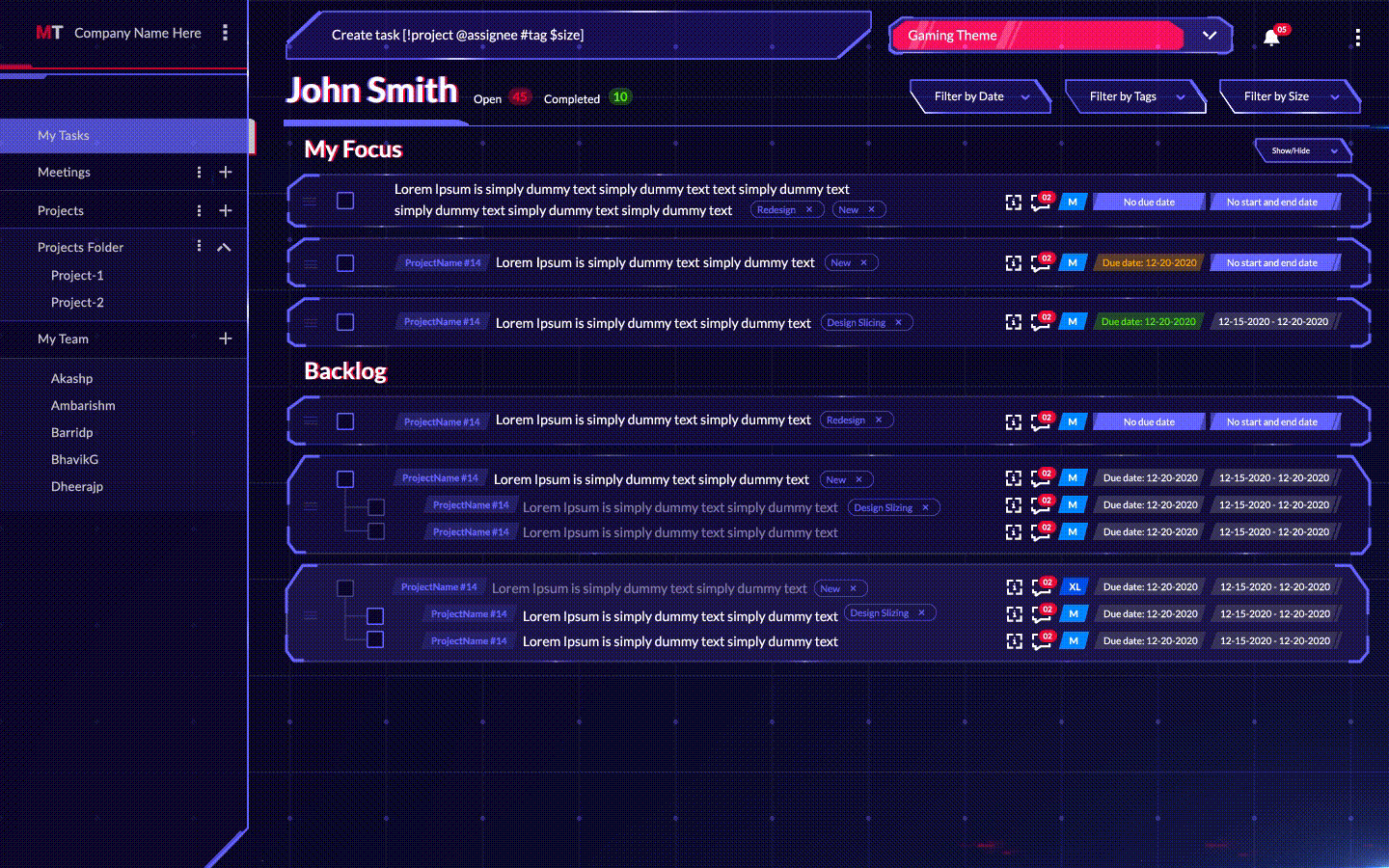
Task management tools offer a single platform to store all your task-related information and easily track them. It provides complete visibility into all of your tasks, their status, and their deadlines and helps you organize and prioritize better.
Task management solutions like MagicTask allow you to collaborate easily with your teammates and share regular updates. You can also set clear deadlines and get reminders as they approach.
Task management tools help you stay on top of your deadlines. It helps you quickly figure out what you need to tackle in a day and focus on them easily. They allow you to prioritize and handle multiple tasks and projects easily. With a task management tool, you can easily break down your long-term goals and projects into small daily tasks and see if you're on track.
In the case of MagicTask, it is also highly gamified and has lots of themes to keep you excited. The platform also gives you points when you complete tasks with which you can compete with your teammates or MagicTask users across the globe.
4. Use a productivity technique that works for you.
Over the last two decades, many productivity techniques have gained much popularity. These productivity techniques are built on different philosophies or perspectives and are often designed to help you resolve specific issues with your work style.
There's no hard rule that dictates which technique will work for you; in fact, your productivity may take a dip if you spend too much time trying to learn all of them. Just pick one, stick with it for a while, and see if its works for you.
If you struggle to focus on your tasks and find yourself getting distracted, the Pomodoro technique may work for you. Work for 25 minutes, take a five-minute break; do this four times. Then take a more extended 30-minute break.
If you find yourself procrastinating on large or complex tasks, try the Eat The Frog method; in fact, you can combine this with other techniques as well. It's simple; do the most difficult or intimidating task the moment you start your day.
The Getting Things Done method may work for you if you work all day long but do not reach your goals.
5. Delegate, delegate, delegate
You don't necessarily have to take on all the tasks yourself; you just have to get them done. If someone else can do it cheaper and in a shorter time without compromising the quality of the work, delegate it to them.
Delegating the tasks will give you more room to breathe and do well what you can do best. When you have little time and are rushing to check every box, the quality of deliverables will decrease. You'll also have less time to focus on the bigger picture.
If you're building a business, you don't necessarily have to design the logo and put up the billboards by yourself.
Delegating the tasks will help you build a better team and understand their capabilities. You can get more work done in a shorter time. You'll also have more energy and better clarity in your mind.
6. Communicate well

Clear communication is essential to meet deadlines. Everyone involved with the task or project needs a clear picture of the deliverables and the deadline.
If you're working with a client or your manager, ensure everyone is on the same page about the goals and expectations. It may be a good idea to communicate regularly and share updates on the status of complex projects or tasks to ensure you're on the right track.
It's also essential to build a culture of clear communication within your team. When multiple people are collaborating on a project or task, it's vital that everyone keeps up with the pace.
It's important to communicate if you're unable to meet the deadline or if there will be any delays. Early updates can help the team tweak its plan and look for alternatives. More time you give them, the more options they have.
7. Make sure you have the resources you need
Before you start working on a project or commit to it, ensure you have all the necessary resources. You want to avoid running around looking for the tools or personnel to help you as the time runs out. You also must ensure that you have the proper training and qualifications to execute the tasks before you start.
Even if you don't, you can still commit to the project; just as long as you can acquire the resources and tools for the task. In these situations, consider these factors when setting deadlines.
Get Things Done With MagicTask
MagicTask is a task management platform that can supercharge your project management capabilities. The platform helps you stay focused and get things done on time without compromising quality. MagicTask's gamification features will help you stay motivated throughout your projects and avoid procrastinating.
The MagicTask platform is also designed to help you collaborate seamlessly with your teammates. You can assign tasks, set deadlines, and get constant updates through the app.
Check out MagicTask and hit your deadlines right on the head.
